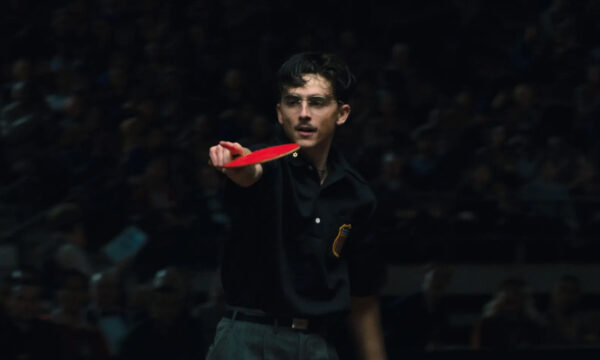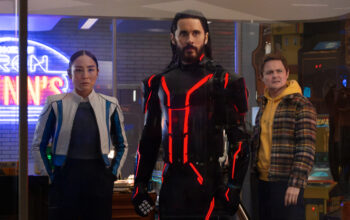Transcendence

The dangerous and morally problematic implications of a self-aware, sentient machine have been the subject of countless sci-fi films and are what Transcendence, at its core, is all about. Whether or not a machine can really possess the defining characteristics of a human is a hefty and highly relevant question, one which the recent Her also explored, but with a great deal more charm and originality than is present in this disappointing film.
Dr Will Caster, played by a competent if unremarkable Johnny Depp, is working to create a sentient machine that will possess the collective intelligence of every human that’s ever lived. Fearing such power being put in the hands of a sentient being, anti-technology extremists aim to violently stop Caster’s efforts. After a poison bullet leaves Caster with a month to live, his wife Evelyn (Rebecca Hall) sets about uploading his brain for use as the basis of the sentient machine that he had begun work on. Caster’s best friend Max, the painfully obvious moral compass of the film, assists Evelyn until he realises the danger inherent in what they are creating.
Evelyn’s thoughtless creation and eventual aiding of a computer Caster is predictably motivated by her love of him. The problem here is that in order to understand and sympathise with Evelyn’s actions, the audience needs to invest in their love, but it’s hard to do that with the criminally brief screen time that’s devoted to exploring the couple’s relationship. Even if this problem had been rectified, there’s still the matter of the broad strokes with which the characters have been painted; they’re hardly believable, individual humans that one can relate to and invest in. For a story about the nature of humanness, it’s surprising that these characters come across so blandly unhuman and quirk-less; their sole purpose is to serve the progressing of the plot, which would be more forgivable if it weren’t so stale and familiar.
A major issue for sci-fi films is usually the use of expositional, unrealistic dialogue to help the audience understand the scientific terms that will more or less inevitably go over their heads. It doesn’t matter how many times Transcendence shoe horns those lamentably relatable words “social”, “media” and “viral” into its script, the science of the film is still going to be near-impossible for the vast majority of us to understand. It’s better to take the approach of the superior Looper, which avoided such clunky dialogue and trusted in the beguiling story to keep the viewers interested, even if as a consequence they might’ve been a little confused.
Transcendence marks Wally Pfister’s directorial debut: prior to this he’s been Christopher Nolan’s go-to cinematographer – something that’s obvious in the breathtaking visuals of the movie. To name one thing, his use of light and shadow and choice of angles to highlight the un-bridgeable differences between man and machine is the work of an expert, and it’s a shame that such expertise has been employed to frame such a formulaic story. The film isn’t hopeless, and the director and actors perform their jobs as competently as is possible when they’re based on a pseudo-intellectual, humourless and dull script, but it’s not enough to make Transcendence deserving of even a second watch.
The editorial unit
Transcendence is released nationwide on 25th April 2014.
Watch the trailer for Transcendence here:





















Facebook
Twitter
Instagram
YouTube
RSS